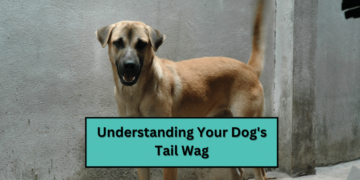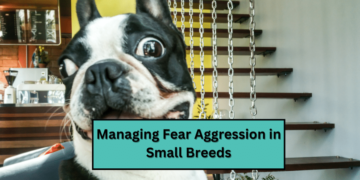Training a hunting dog is not only a commitment of time and patience; it also involves a financial aspect that prospective trainers and dog owners should consider. Whether you’re thinking of training a pup to become your next bird dog or a skilled tracker for larger game, the costs can vary widely. How much does it cost to train a hunting dog? This question dives into various factors that influence the price tag—from breed-specific training needs to the level of expertise required.
In this article, we’ll break down the expenses you can expect, including professional training fees, equipment costs, and ongoing expenses to maintain your dog’s skills sharp and effective in the field.
The Basics of Hunting Dog Training
Training a hunting dog is a nuanced process that extends beyond basic obedience. It involves honing the dog’s natural instincts and abilities to work in tandem with the hunter. Here’s what the foundation of hunting dog training typically includes:
Breed and Prey Specific Training
The training approach largely depends on the breed and intended prey. Pointers and setters require different training than retrievers or hounds. For instance, a retriever is taught to fetch and return game without damage, while hounds are trained for their tracking abilities. The initial phase of training is tailored to these specific skills, often leveraging the dog’s natural inclinations.
Obedience Training
Before a dog can be trained for hunting, it must master basic obedience commands like sit, stay, come, heel, and leave it. Obedience is crucial in the field to ensure the dog’s safety and the success of the hunt. This also establishes the handler’s role as the leader, which is essential for any further training.
Field Training
Field training introduces the dog to the environment where it will be hunting. This includes familiarization with gunshots, water bodies for waterfowls, and different terrains. Dogs learn to navigate the landscape, respond to whistle commands, and work with the scents of various game.
Introducing Game
Live games or scents are introduced in a controlled environment to teach the dog how to track, point, flush, or retrieve. Initial training might use wings of birds or scented dummies before moving on to actual game in controlled scenarios. The aim is to refine the dog’s natural hunting and retrieving instincts.
Advanced Training Techniques
Advanced training involves more complex commands and tasks such as quartering, which is searching an area in a pattern, blind retrieves, and hand signals for direction control. This phase of training can be rigorous, requiring both the dog and trainer to be adept and responsive.
Consistency and Reinforcement
Hunting dogs require consistent reinforcement of their training. This can mean daily exercises, including practice retrieves, following scent trails, or rehearsing commands. Consistency helps ingrain these behaviors as second nature, ensuring they perform reliably in the field.
Exposure to Real Hunting Situations
Eventually, the dog must be exposed to actual hunting scenarios. This will reinforce its training and adjust its behavior to real-world unpredictability. Many handlers will accompany seasoned hunting dogs to provide young trainees with live examples of how to behave and react.
Training a hunting dog is a progressive journey that starts with basic obedience and culminates in a finely tuned set of skills specific to the dog’s breed and the game it will hunt. Whether it’s a leisure pursuit or a serious sporting endeavor, the foundational training is what ensures a successful and satisfying hunting experience for both the dog and its owner.
Initial Costs of Training

The journey of training a hunting dog comes with an assortment of initial costs that are crucial for a solid start. These expenses lay the groundwork for an effective training program and can vary widely based on several factors, including whether you’re doing it yourself or enlisting professional help. Here’s a breakdown of what you can expect:
Professional Training Fees
If you choose to use a professional trainer, the cost can be one of the most significant expenses. Fees can range from several hundred to thousands of dollars, depending on the trainer’s reputation, the duration of the training program, and the level of specialized skills being taught. Some trainers offer comprehensive packages that take a puppy through to a fully trained state, while others may charge on a monthly basis.
Training Equipment
The right training equipment is essential and includes items such as leashes, collars, harnesses, and training dummies. Specialized equipment like bird launchers, tracking collars, and e-collars can also be part of the toolkit. Expect to invest anywhere from $50 to $500 for basic gear, with more advanced technology adding significantly to the cost.
Hunting Licenses and Permits
Depending on where you live, you may need a hunting license or permit, even for training purposes, especially if you’re using live game. Costs vary by location and the type of game you intend to hunt, generally ranging from $20 to over $100.
Vaccinations and Health Checks
Before starting training, a hunting dog must be in top health. Initial veterinary care includes vaccinations, flea and tick prevention, and a health checkup. Depending on your veterinarian and the specific needs of your dog, initial medical costs can be between $100 and $300.
Nutrition and Care
A high-quality diet is important for the physical demands placed on a hunting dog. The cost of premium dog food, along with supplements, can start at around $30 to $100 per month. This cost is ongoing and increases as the puppy grows.
Travel and Time Investment
Don’t forget to account for the cost of your time and travel to training locations. Gas, vehicle wear and tear, and potentially accommodation, if traveling to specialty training grounds, add to the expense. The time investment is also significant and, while not monetarily quantifiable, should be considered part of the cost.
Miscellaneous Costs
There are always unforeseen costs, such as replacing chewed-up gear, additional training aids, or unforeseen veterinary care. Setting aside a contingency fund of a few hundred dollars is a sensible part of budgeting for initial training costs.
In summary, the initial costs of training a hunting dog can range widely, starting from a few hundred to several thousand dollars. It’s an investment that demands financial planning, dedication, and a commitment to ongoing expenses to ensure your hunting companion is well-prepared for the field.
Professional Training Fees
The path to a well-trained hunting dog often leads to the door of a professional trainer, where the expertise provided can accelerate the learning process and enhance the skills of your canine companion. However, this expertise comes at a price, and understanding these fees is crucial for any owner considering this route.
Determining Factors of Training Costs
Professional training fees are influenced by a variety of factors, including:
- Trainer’s Expertise: More experienced trainers who have a track record of success in training top-quality hunting dogs tend to charge more for their services.
- Training Duration: A comprehensive training program that spans several months will cost significantly more than a basic obedience course or a short-term training camp.
- Type of Training: Specialized training such as waterfowl retrieval, pointing, or tracking commands a premium due to the specialized skills and knowledge required.
- Group vs. Individual Sessions: One-on-one training is generally more expensive than group classes due to the personalized attention and customized training plan.
- Location: Training fees also vary by geographic location, with trainers in high-demand areas or those who have access to specialized training grounds possibly charging more.
Fee Structures
Professional trainers might offer different fee structures:
- Flat-Rate Programs: Some trainers offer packages that cover the entire training process, from puppy to finished hunting dog. These can range from $2,000 to $10,000 or more.
- Monthly Fees: Training might also be billed monthly, which can range from $500 to $1,500 per month, depending on the aforementioned factors.
- Per Session: Occasionally, trainers may offer services at a per-session rate, especially for specific training goals or problem-solving.
Additional Expenses
Beyond the base cost of training, owners should be aware that additional expenses might occur. These can include:
- Transportation: getting your dog to and from the trainer, especially if they are located far from your home.
- Boarding Fees: If your dog stays with the trainer for an extended period, boarding fees may apply.
- Field Trial Entry: If part of the training involves entering your dog in field trials, there will be entry fees and associated travel costs.
Investment Considerations
Investing in professional training is not just about paying for services rendered; it’s about investing in the future performance and happiness of your dog. A well-trained hunting dog is safer, more effective, and often enjoys a stronger bond with its owner.
Making the Decision
When deciding whether to engage with a professional trainer, consider not only the upfront costs but also the value of the time saved and the potential for a higher level of training success. It’s important for owners to carefully evaluate their budget, training goals, and the qualifications of potential trainers to make the best decision for themselves and their hunting companion.
DIY Training vs. Professional Training

For hunting dog owners, deciding between DIY training and professional training is often a matter of balancing time, budget, and the desired level of expertise. Both paths have their own set of benefits and challenges.
DIY Training
Advantages:
- Cost Savings: The most apparent benefit of DIY training is the avoidance of professional fees. The primary costs are your time and any training materials you may need to purchase.
- Bonding: Training your dog yourself can lead to a deeper bond, as you and your dog learn to communicate and work together directly.
- Personalized Pace: You can set the training pace based on your dog’s unique learning curve and your personal schedule.
Challenges:
- Time Investment: DIY training requires a significant time commitment. Consistency and regular practice sessions are essential for success.
- Skill Level: Without prior experience, you may not be able to address specific training challenges or fine-tune advanced hunting skills effectively.
- Resources: Access to training grounds, birds for retrieval, and other specialized resources may be limited.
Professional Training
Advantages:
- Expertise: Professional trainers bring a wealth of knowledge and experience. They can effectively shape your dog’s behavior and hone specialized hunting skills.
- Efficiency: Professionals may achieve results more quickly due to their expertise and consistent training routines.
- Facilities: Many trainers have access to high-quality training grounds and resources that simulate real hunting environments.
Challenges:
- Cost: The primary deterrent for many is the expense associated with professional training.
- Less Hands-On Involvement: You may miss out on some of the bonding experiences that come with training your dog yourself.
- Separation: Extended training programs often require your dog to stay on-site, which means spending time apart.
Making the Choice
When weighing DIY training against professional services, consider the following:
- Goals: What level of training does your dog need? Are you preparing for casual hunts or competitive events?
- Time: Do you have the time to commit to training your dog properly, and can you maintain a consistent schedule?
- Experience: Do you have the necessary skills, or are you willing and able to learn them?
- Budget: Can you afford professional training, or would the cost stretch your finances too thinly?
Ultimately, the decision may not be binary. Many owners opt for a hybrid approach, handling basic training themselves and seeking professional help for advanced skills or specific challenges. This can offer a balance of personal involvement and expert guidance, potentially yielding the best results for both the dog and the owner.
Additional Costs
When training a hunting dog, there are several ancillary expenses that can add up beyond the basic training costs or professional fees. It’s crucial for dog owners to budget for these when planning for their hunting companion’s education.
Gear and Equipment
- Training Collars: Electronic collars, whistle, and check cords are some of the specialized training tools that may be necessary, especially for reinforcing commands over distance or through cover.
- Dummies and Decoys: These are used for retrieval training and to simulate hunting scenarios, teaching dogs to fetch and gently handle game.
- Protective Gear: Depending on the environment and game, protective vests to guard against rough terrain or cold water may be needed.
Health Maintenance
- Veterinary Care: Regular check-ups to ensure the dog is fit for the rigors of hunting. This includes vaccinations, flea and tick prevention, and any necessary medical attention due to field injuries.
- Nutrition: High-quality food that provides the energy and nutrition needed for a working dog, which may cost more than standard dog food.
- Supplements: Joint supplements or other health-specific additives might be recommended, especially for older dogs or those with heavy training schedules.
Travel and Accommodations
- Transportation: costs for traveling to training grounds or professional facilities, which might include fuel or even airfare.
- Lodging: If attending training sessions far from home, overnight stays could be required for both the dog and the owner.
License and Fees
- Hunting License: While not a direct training cost, obtaining a hunting license is a necessary step before taking your dog into the field.
- Land Use Fees: Access to private lands or premium training grounds may require additional fees.
Trial and Competition Entry
- Entry Fees: If you plan to enter your dog into field trials or hunting tests, each event will have an entry fee.
- Membership Dues: Joining hunting or breed-specific clubs can provide resources and support but may require annual dues.
Miscellaneous
- Books and Resources: instructional books, videos, or online courses for those opting for DIY training.
- Emergency Fund: It’s wise to set aside funds for unexpected costs, such as emergency veterinary care.
The totality of these costs should be considered when taking on the task of training a hunting dog. A well-prepared budget ensures that both you and your dog can focus on the training itself, rather than being sidelined by unforeseen expenses.
Conclusion
Embarking on the journey of training a hunting dog is an investment with a spectrum of costs that reflect the quality and depth of training. As we’ve explored, how much it costs to train a hunting dog depends on numerous variables, such as the type of training, the breed of the dog, the training duration, and the equipment required. While the initial costs can be significant, the rewards of having a well-trained hunting companion by your side are invaluable.
Not only does it enhance the hunting experience, but it also fosters a deep bond between the hunter and their loyal canine. Remember to budget not only for the financial costs but also for the time and commitment it takes to train a hunting dog successfully. With dedication and the right resources, your investment can yield a disciplined and reliable hunting partner for years to come.



















































Discussion about this post